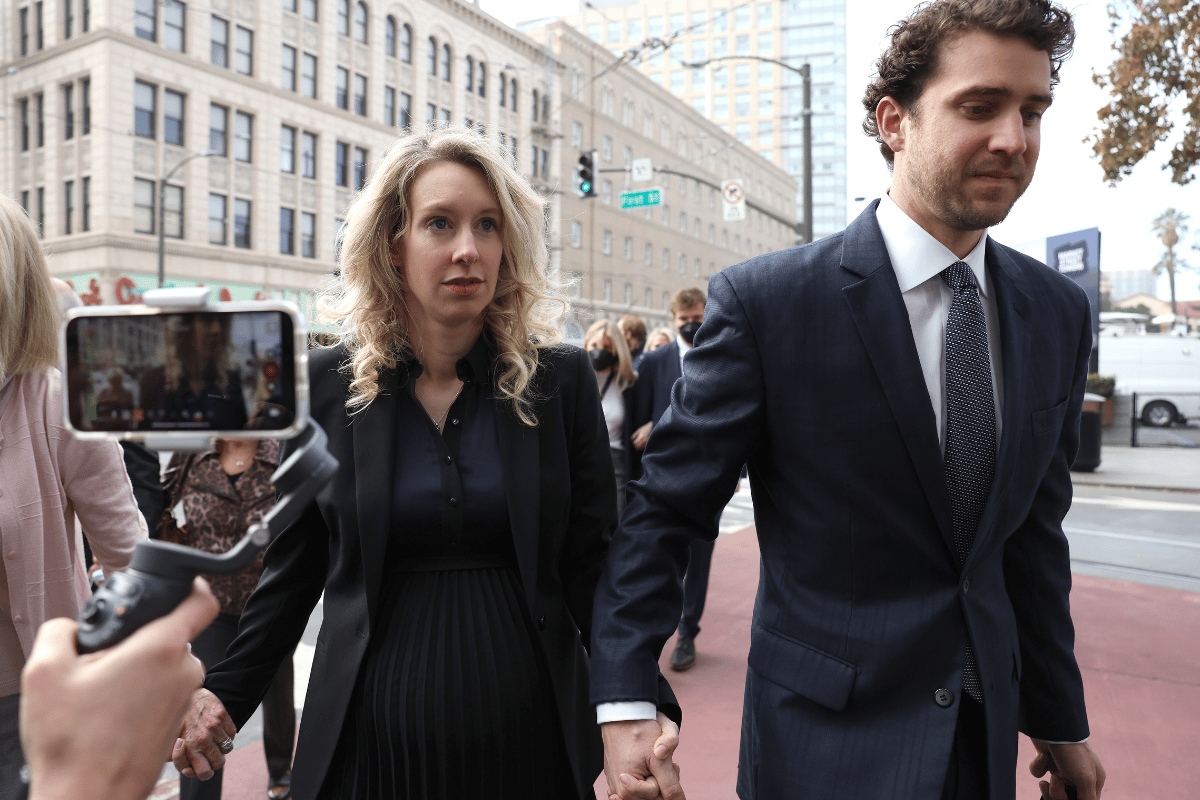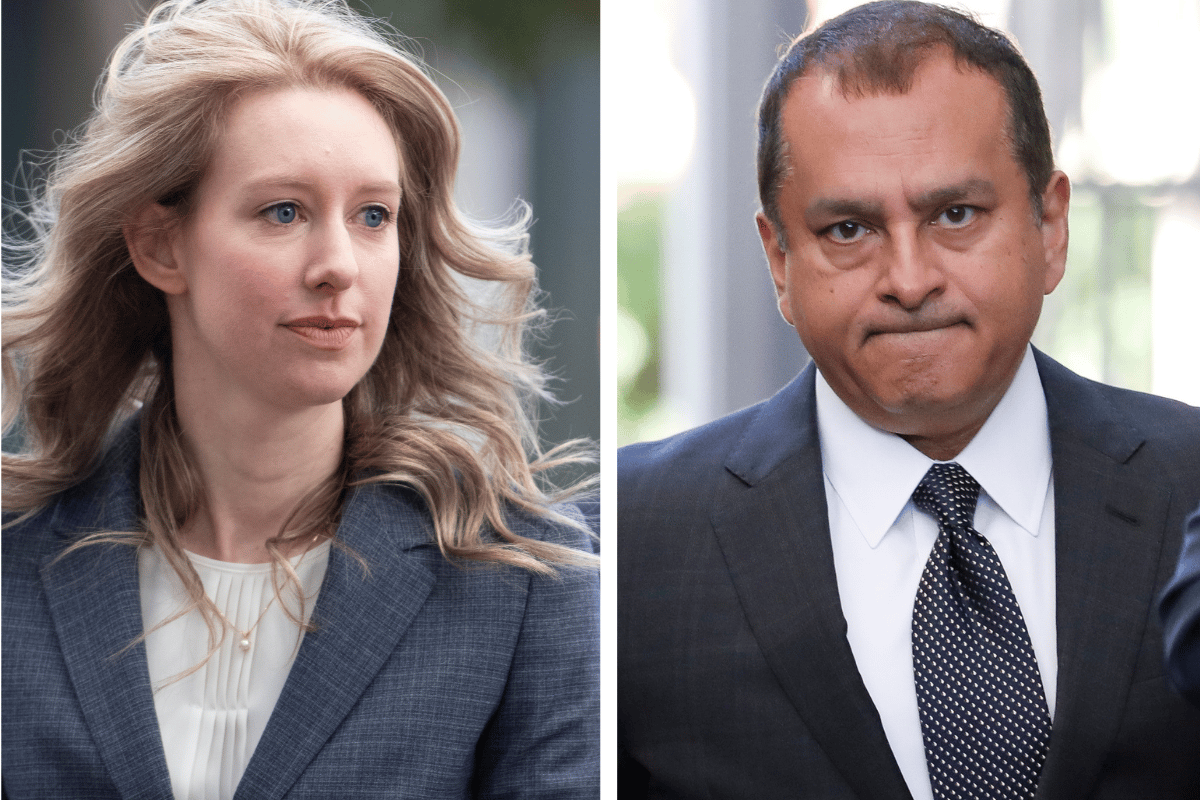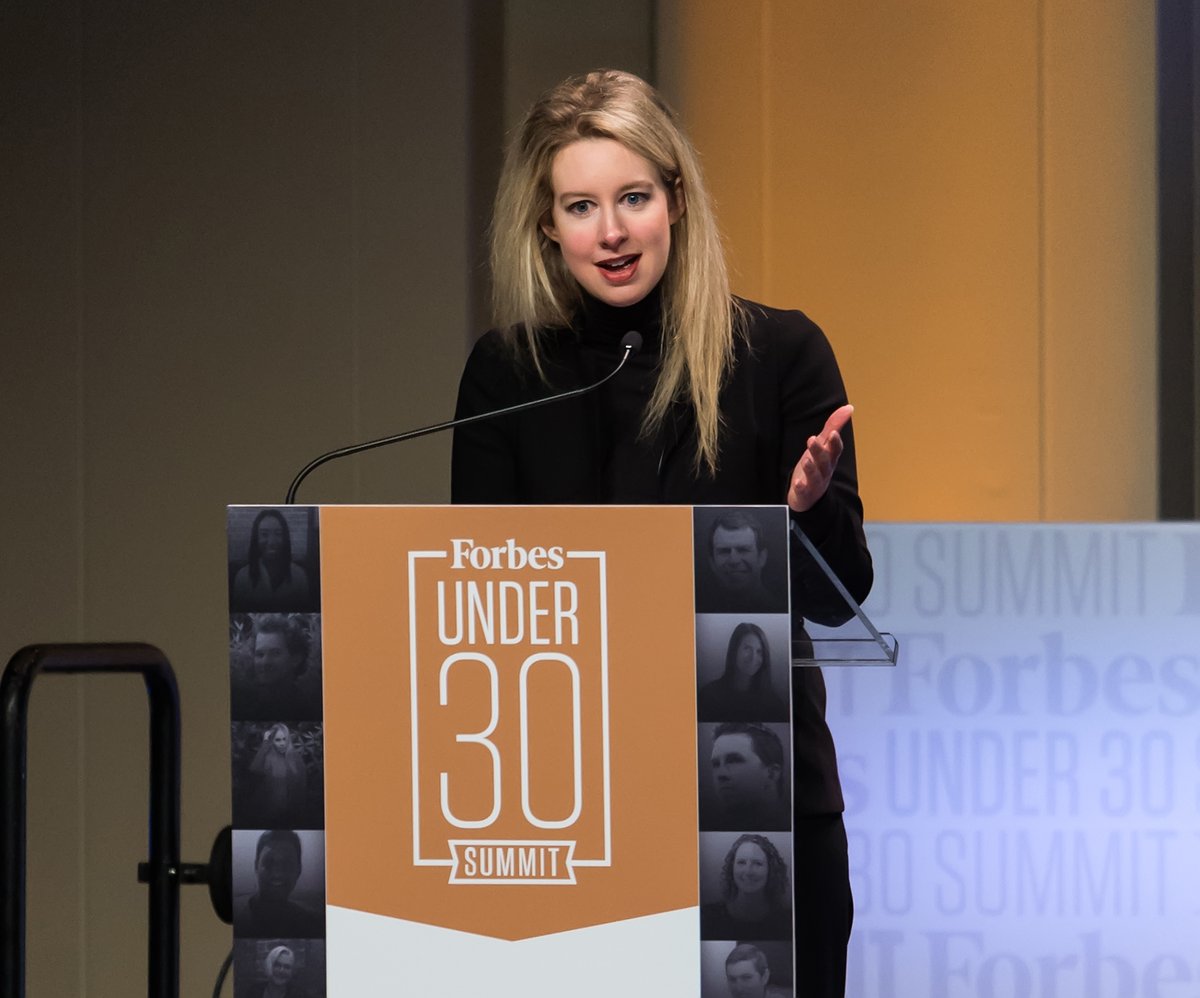
By now, the story of Elizabeth Holmes and her US$9 billion (AUD$12.5 billion) fraud with blood-testing company Theranos is well known. And this week, a US judge sentenced the 38-year-old to more than 11 years in prison for it.
What some weren't aware of is the fact Holmes is pregnant. Court documents released this week confirmed that Holmes is expecting her second child, who will be born while she is serving her 11-year jail sentence.
Per the court filings obtained by The New York Times, she became pregnant after being convicted in January.
Holmes and her husband Billy Evans welcomed their first child, William Holmes Evans, in July last year, before her criminal trial began.
Giving birth in prison is no easy feat. Often for the mothers, it means saying goodbye to their child - either for that baby to be put in the care of the government system, or for the mother's partner and/or family to gain sole custody.
In some American prisons, the inmate mothers are allowed to have a doula be present for the birth - helping them physically and emotionally through the process. And according to Frontline, fewer than a dozen of the 50 American states have prison nurseries where babies can stay. The standard of care throughout the entire birth process has also been reported as below adequate standards - both in America and across the world.
As one former female inmate and mother told The Guardian: "The day I went into labour was the most traumatic day of my life. My contractions started at 5:30am and I pressed the cell buzzer to call for urgent help. As the contractions took hold, I called again, and again, but nobody came for two hours. I was terrified I would give birth to my baby on the cell floor."






























































































